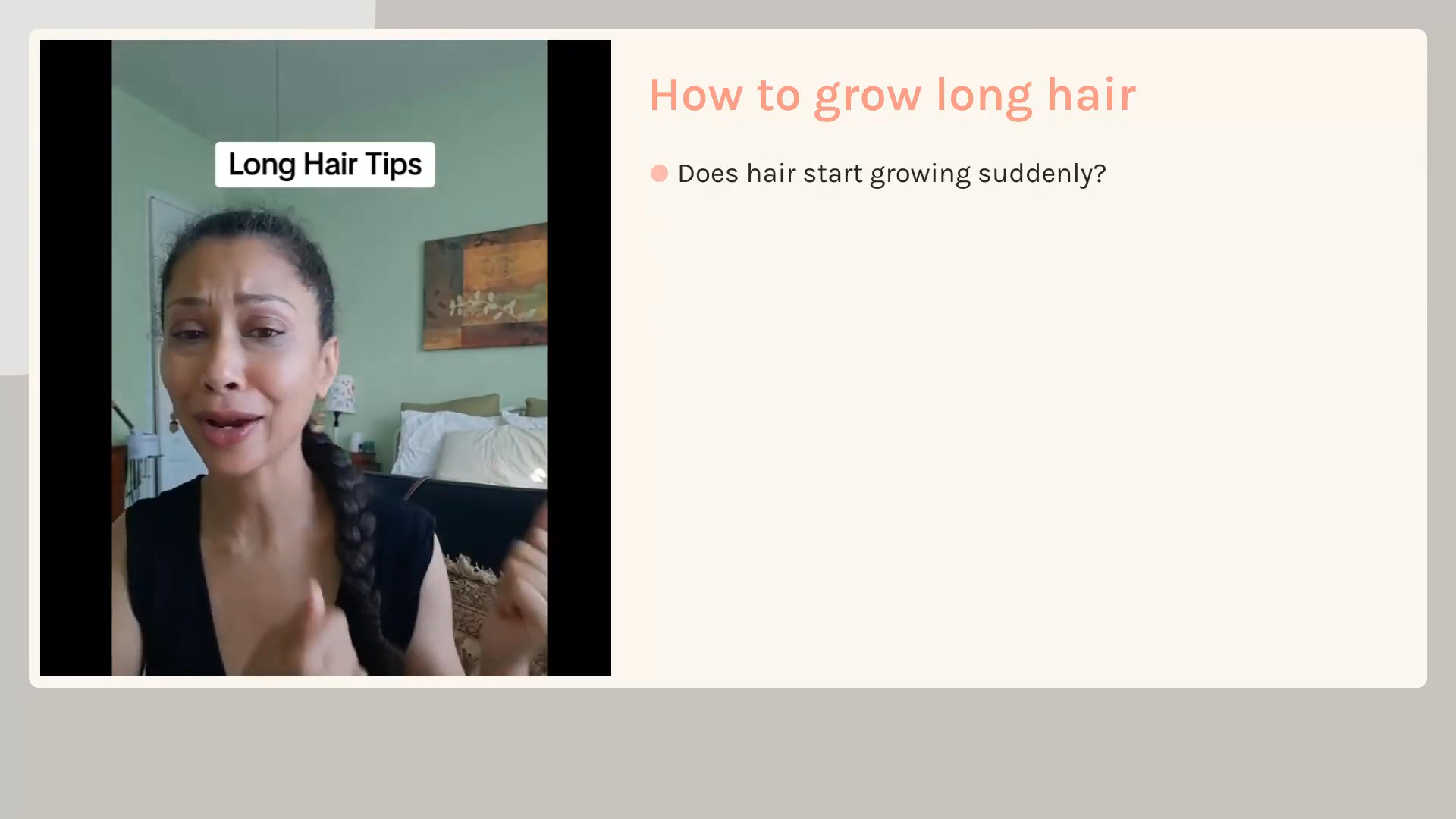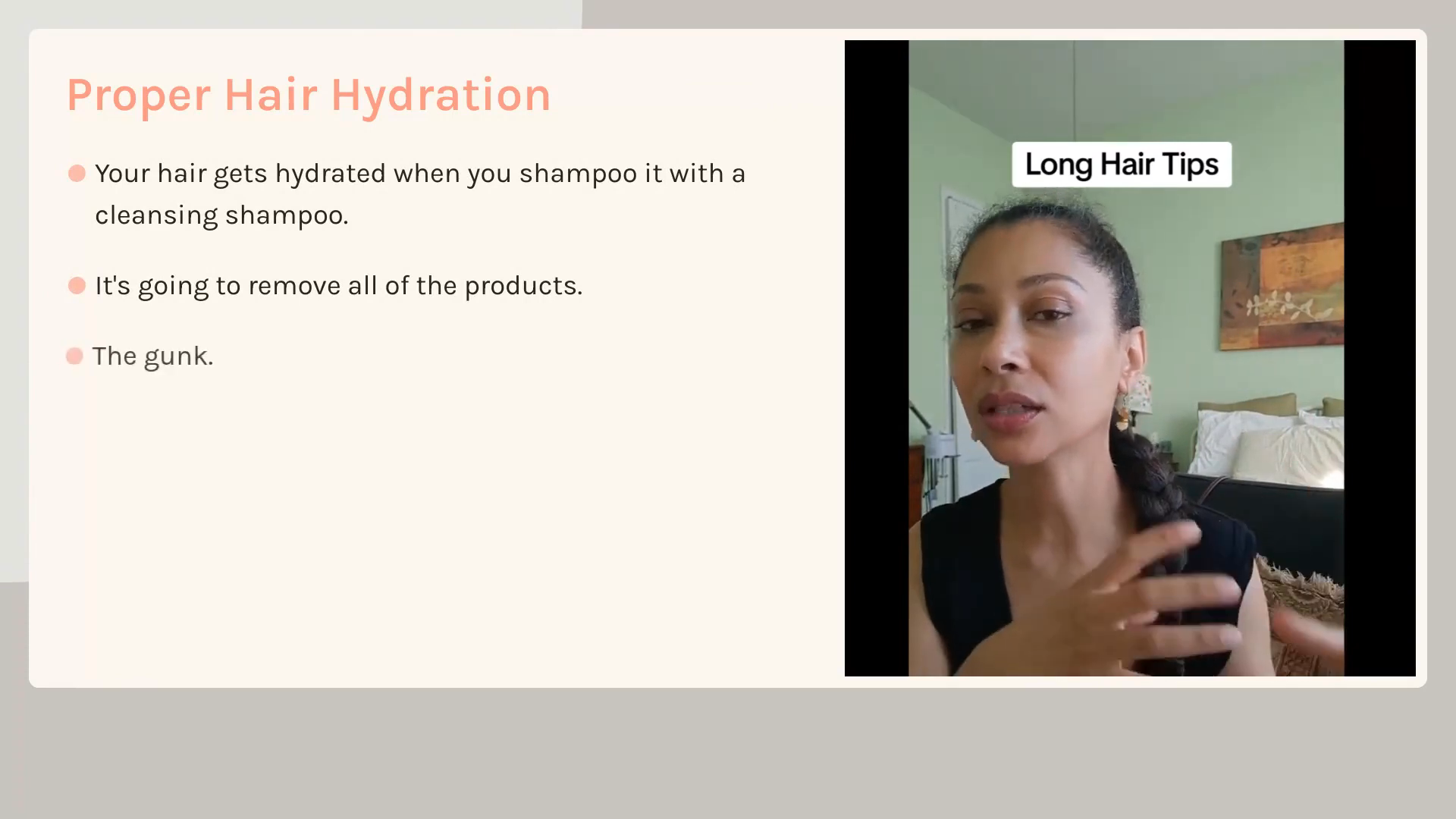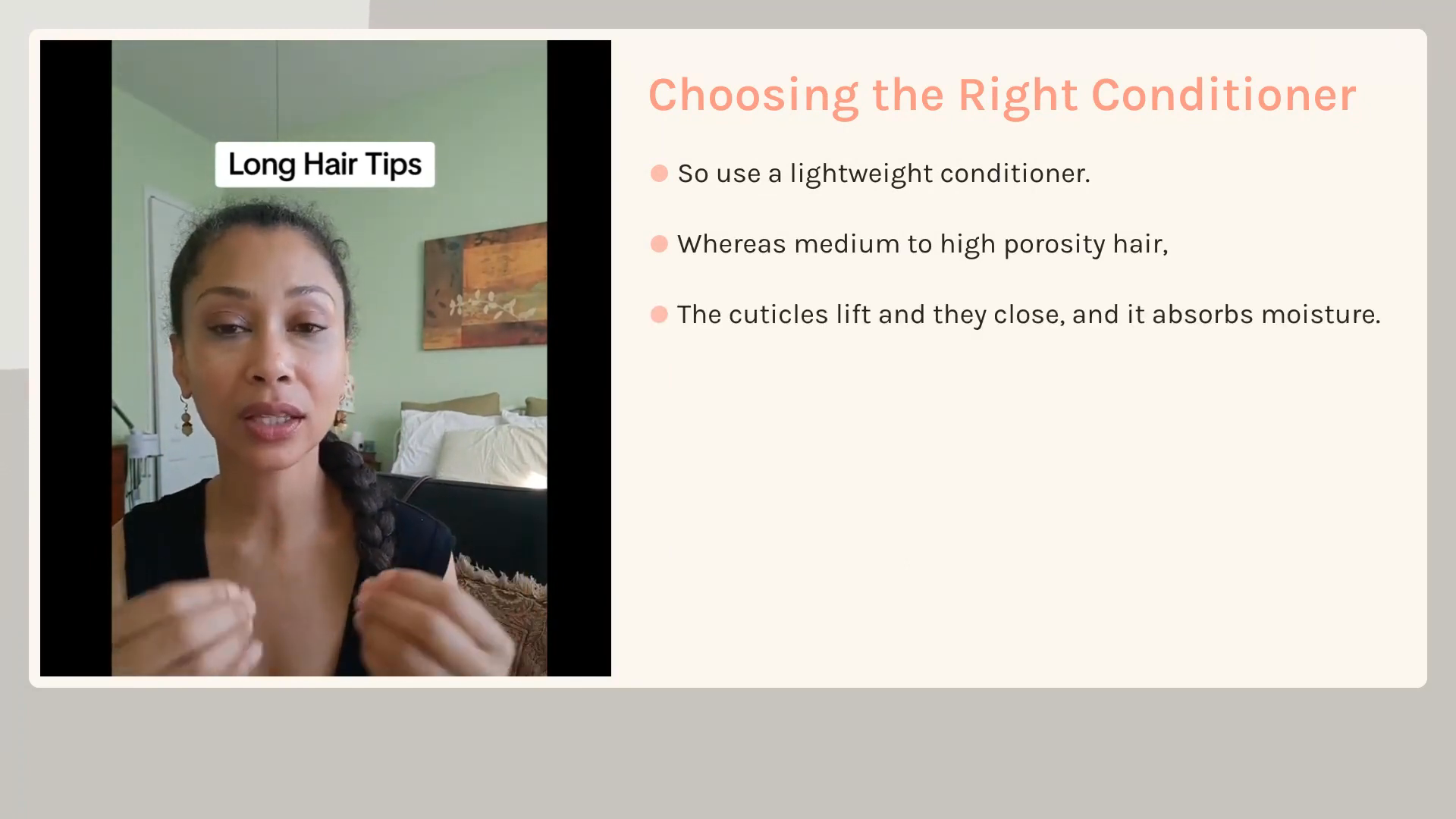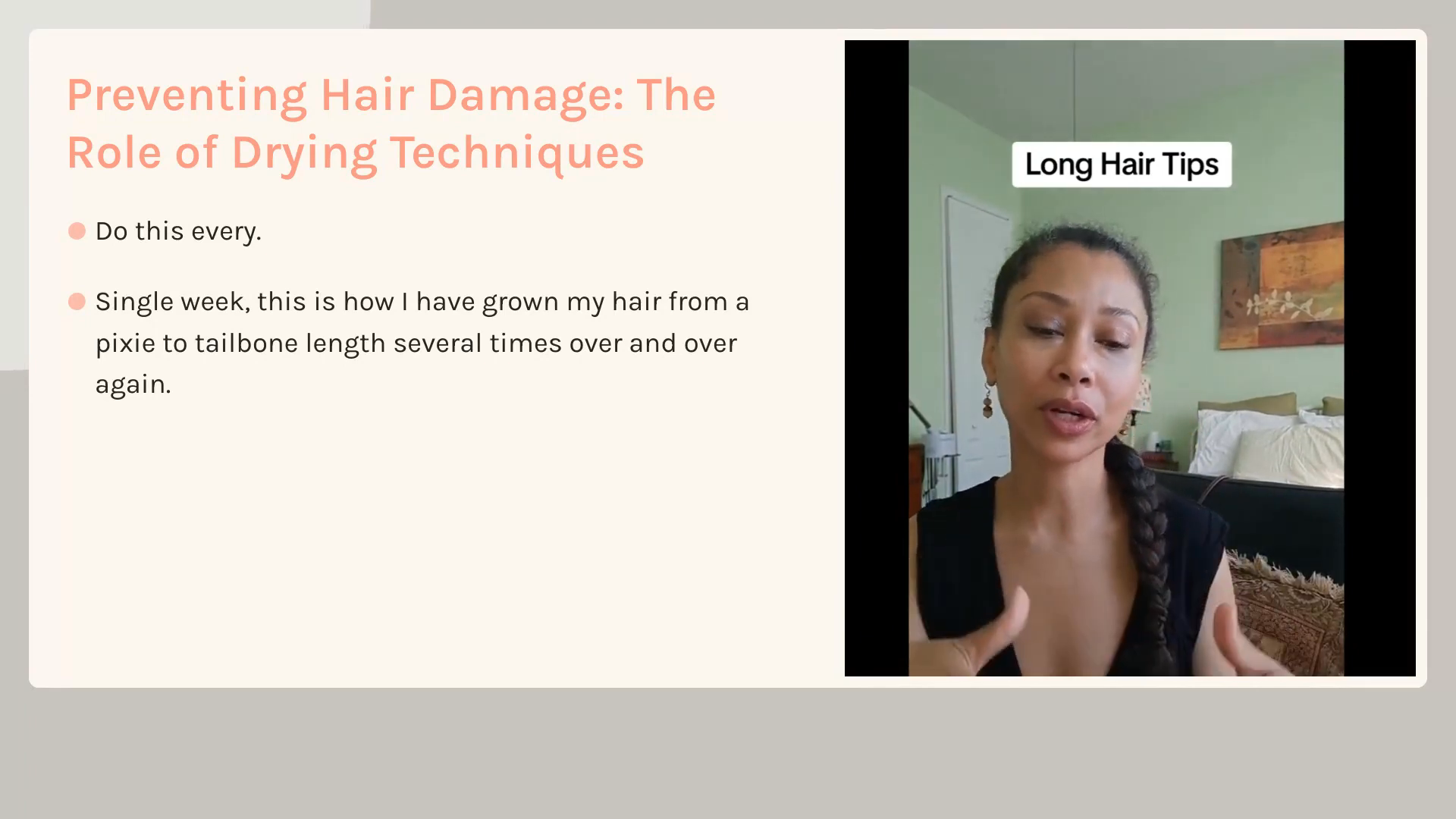Let's talk hair growth and growing your hair the longest it's ever been. Now, first, I want to dispel the myth that Black women cannot grow long hair. That is one of the most ridiculous things that people can say. Our hair doesn't just stop growing after a certain length.

Look at when folks get locks. When they go from having their hair loose and get it locked, suddenly, they have long hair. Is it like suddenly the hair starts growing? No, their hair has always been growing. Here's the thing: Afro-textured hair, compared to Asian and Caucasian hair, is thinner, finer, it dries more quickly, and therefore becomes more brittle. This makes it more prone to breakage.
Because of all these factors working against our hair, it is harder for us to grow long hair, but it's not impossible. Again, case in point, when people get their hair locked, it gets long. So here are the tips. If you don't want to get locked hair and you want to keep your hair loose, healthy, and grow it long and strong, these are my recommendations, and they are based off my 14 years of hair care experience, conversations with hair specialists, and the best hair care practices.
1. Shampoo Your Hair on a Regular Basis
There is a myth going around that dirty hair grows faster. I heard it growing up, and I still hear people saying it to this day, but it's just not true. Your hair will grow at the same rate regardless of whether you wash it or not. However, if you deny your hair regular shampooing, you are denying it hydration.
When you shampoo your hair with a cleansing shampoo, it removes all of the products, oil, and dirt from your hair. This also helps the cuticle to lift so that it can absorb moisture better. Hydrated hair maintains its elasticity, which keeps it from breaking off.

You can't just wet your hair. Misting it every day is not the same as hydrating your hair. That will only reactivate the products you have on your hair, making it feel softer, but that's not hydrating.
2. Always Follow Up with a Good Conditioner
Whenever you use shampoo, always follow up with a good conditioner. You want to look for a conditioner that works for your hair's porosity. My recommendation for low porosity hair is to use lighter weight conditioners. You don't need deep conditioning treatments because your hair isn't damaged. The problem with low porosity hair is the cuticles are closely compact, making it harder for your hair to absorb moisture.
If you're using a heavy conditioner that coats the strands, guess what? When you apply your leave-in and stylers, they are just going to sit on top of your hair. So, use a lightweight conditioner. Conversely, medium to high porosity hair has cuticles that lift and smooth, absorbing moisture but having a harder time retaining it. For this type, use more emollient-rich, heavier conditioners.
3. Use a Good Leave-In

I always recommend using a leave-in conditioner for your hair. Some product lines offer two-in-one or single products that claim to cover everything. While these can be convenient, you might notice that certain parts of your hair need more leave-in and other parts might need more styler. Our hair can have different textures and porosities on one head.
Layering your products allows you to tailor your hair care to specific needs. For instance, the ends of your hair often need extra product to keep them protected compared to the roots.
So, use a good leave-in. If your hair is low porosity, find the right product-to-water ratio for wash-and-go styles.
4. Never Air Dry
Now, this tip might be a little controversial, but I urge you: never air dry. Never ever air dry. I never air dry my hair. Even if it's 230 degrees outside, I sit under my hooded hair dryer. The reason? When our hair is wet, it's in its weakest state. The cuticles are lifted and the bonds in your hair, called the cell membrane complex, are weaker when wet.
Leaving your hair wet causes the bonds to weaken even further, leading to hygral fatigue—or over-moisturization. This is similar to what happens if you leave conditioner in your hair for too long. Swimmers also experience significant hair breakage and damage—not just from chlorine, but also from keeping their hair in this weakened state.
So, use a blow dryer with a diffuser or a hooded hair dryer. Do this every week. This is how I have grown my hair from a pixie cut to tailbone length several times. It's not because of some magical genes. I don't have those. I just have a hair care routine that allows me to retain length.
Conclusion
Growing long, healthy hair is absolutely achievable for Black women. With regular shampooing to maintain hydration, using conditioners suited to your hair porosity, employing good leave-in products, and avoiding air drying, you can significantly reduce hair breakage and foster healthy growth.
Remember: Consistency in your hair care routine is key. Experiment with these tips and find what works best for your hair type. You, too, can achieve long, strong, and healthy hair.



1 comment
Thank you for the tips especially about air drying. I thought that all heat was bad. I would go from toweled dry hair to directly styling my hair in twists.